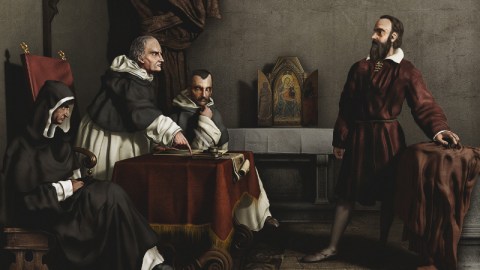The New War on Science: Climate Change Deniers

Just over two years ago, what appeared to be a large treasure trove of emails from the Climate Research Unit of the University of East Anglia was hacked and then released (likely illegally) to the public. This set off a veritable feeding frenzy among climate change deniers. FOX News reported “shocking” revelations of evidence tampering. The emails soon collectively came to be known as “Climategate.” The only problem with this conspiracy theory was that the emails only revealed that scientists are humans, and some of them might be a tad impolite.
The Independent Climate Change Email Review cleared the British scientists of their supposed malfeasance, and most importantly, according to Factcheck.org, the leaked emails contained nothing to undermine the overwhelming scientific consensus on global warming. And yet, the leaked emails did a lot to distract the public right before the 2009 United Nations Summit in Copenhagen, an international conference that failed to produce any legally-binding commitments for reducing CO2emissions.
Score one for the climate change deniers. And now, it is happening again. Almost two years to the date of the last email leak, an anonymous hacker released 5,000 new emails in advance of an international conference on climate change happening right now in Durban, South Africa.
According to James Powell, the former President of Reed College and the author of the recent book, The Inquisition of Climate Science, this is just one of the many tactics used by climate change deniers in their ever-escalating war on science. When the facts aren’t on your side, obfuscate.
What’s the Big idea?
Powell’s use of the term “inquisition” is deliberate. “Just as the Roman Inquisition rejected outright the evidence that Copernicus and Galileo had assembled to show that Earth moves around the Sun,” he writes, “the modern inquisitors deny the overwhelming evidence of global warming.”
Among the many myths that Powell says climate change deniers have spread, two real doozies stand out:
In his book, Powell demolishes both of these myths. Is there a lack of scientific consensus on climate change? As Powell demonstrates, there isn’t even a debate. Climate change deniers used to be able to claim at least one lone wolf (real scientist) among their ranks, the Berkley physicist Richard Muller. However, Muller recently completed a David and Charles Koch–funded study that found (Powell assumes, to the brothers’ chagrin) that the earth is in fact warming and that previous studies were right on the money. Climate change deniers like Anthony Watts said they would accept Muller’s findings, whatever they might bring. So what was Watts’s reaction? (Drum roll please)…Still in denial.
So how have climate change deniers been so successful in persuading members of the public that climate change is somehow “a hoax” or “junk science”? Just turn on your TV, says Powell. There we see so-called “climate skeptics” paraded out before the media all the time, where they are presented as experts. According to Powell, these fake scientists, who are completely lacking in any sort of scientific credentials, have no more basis on which to challenge the scientific proof of global warming than the Catholic church had to challenge Galileo.
For example, Powell points to a climate change denial conference held in New York in 2009 sponsored by the Heartland Institute (a group whose previous claim to fame was helping Philip Morris deny claims that secondhand smoke is bad for your health). This event hyped its presenters as “the elite in the world among climate scientists.” If that were true, Powell argues, “then many of the speakers would be active in original climate research, publishing their results in peer-reviewed scientific journals.” However, that was the case for none of them. In fact, many of the presenters did not even have scientific degrees.
So who are these people? They are people like Anthony Watts, the aforementioned climate change denier. His scientific credentials? Former weatherman. That’s right. How can the same guy who can’t even predict whether it will rain tomorrow have the audacity to tell the entire scientific community it is wrong, especially in the face of a mountain of evidence?
And yet, Watts is not alone among weathermen. As an interesting article in The New Republic distills, “most scientists are loath to speak to subjects outside of their own field, and with good reason—you wouldn’t expect a dentist to know much about, say, the geological strata of the Grand Canyon.” And yet, some weathermen, however, like Watts, “by virtue of typically being the only people with any science background at their [television] stations, are under the opposite pressure—to be conversant in anything and everything scientific.”
Sadly for them, as Powell points out, none of their arguments would ever withstand peer-review, and that is why you will find zero articles published by these pseudo-scientists in any scientific journals.
Not only do you not need a weatherman to know which way the wind blows, you probably do need a scientific degree to offer an informed opinion on climate science. After all, this is one of the most pressing issues facing the human race today. If your life were at stake, would you hire a lawyer to operate on your brain? And yet, instead of hearing from experts in the field of climate science, we are too often reduced to hearing the opinions, according to Powell, of “a few people presenting themselves as experts and saying that the world community of scientists are wrong.”
What’s the Significance?
Powell says there are enormous costs associated with the war on science.
For instance, “If you look at the cost in lives historically,” he tells Big Think, “let’s say during the 20th Century, from denial of science, there are many millions of people who have died in Russia, in China.” Those are oppressive regimes, and those figures should be no surprise to us. Are we repeating those mistakes? According to Powell, “there are millions of people who will die in my opinion from global warming if we don’t do something about it.”




